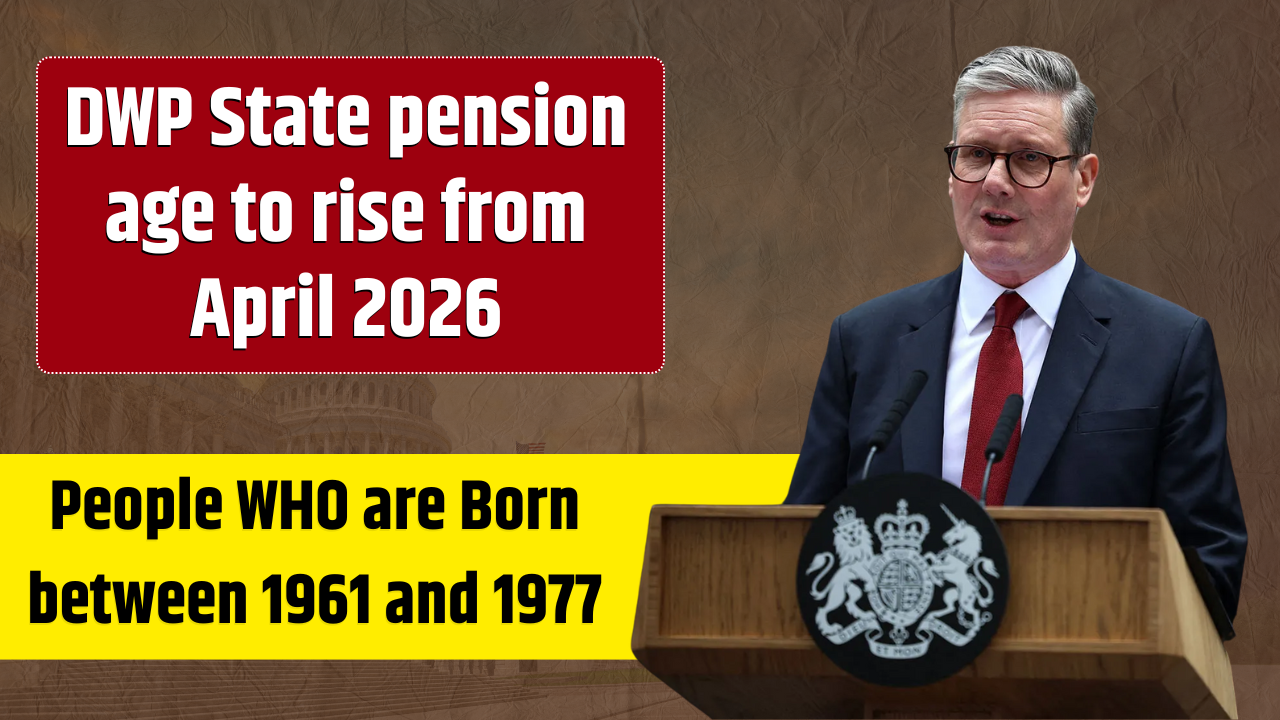Millions of people across the UK will be affected by upcoming changes to the State Pension age, which is set to increase starting in April 2026. This move, driven by legislation passed in 2014, means many will need to work longer before they can access their State Pension, prompting a renewed call for retirement planning.
Currently, men and women can claim their State Pension at age 66. However, beginning next April, the State Pension age will gradually increase to 67, with the transition completing by March 2028.
Who Will Be Affected?
If you were born between March 6, 1961, and April 5, 1977, you will now have to wait until age 67 to start receiving your State Pension. That’s a full year later than those born before this window.
This change won’t happen overnight. Instead, it will be phased in gradually over the two-year period, giving affected individuals time to adjust their retirement plans. These changes are part of the UK government’s long-term approach to account for increased life expectancy and manage the financial sustainability of the pension system.
What’s Next? Plans for Future Increases
While the shift to 67 is already scheduled, further increases are under consideration:
- A rise to 68 is currently slated for 2044 to 2046.
- However, the 2017 Cridland Review suggested bringing this forward to 2037–2039, which would affect those born between April 6, 1970, and April 5, 1978.
- A 2022 review proposed a slower timeline, potentially moving the rise to 68 into the 2041–2043 period.
- There is even discussion about raising the pension age to 69 between 2046 and 2048, though no official decision has been made.
The Department for Work and Pensions (DWP) is expected to continue reviewing pension age policy every five years, meaning further changes could be announced in the near future—especially under the newly elected Labour government, which has committed to reviewing retirement and welfare policies.
Use the GOV.UK Pension Age Checker
To find out when you can claim your State Pension, use the official GOV.UK pension age tool. It will show:
- Your exact State Pension age
- Your Pension Credit eligibility
- When you’ll start receiving payments
This tool is especially helpful for those nearing retirement or making financial plans for the years ahead.
April 2025 State Pension Increase
Starting April 2025, retirees will also benefit from a State Pension increase, thanks to the UK’s Triple Lock guarantee. This policy ensures pensions rise each year by the highest of:
- Inflation
- Average earnings growth
- 2.5%
For 2025, the 4.1% increase reflects wage growth, resulting in an annual boost of £474.85. The New State Pension will rise from £11,541.90 to £12,016.75 per year—equivalent to roughly £231 per week.
Two Types of State Pension in the UK
- New State Pension – For those who reached State Pension age on or after April 6, 2016
- Basic State Pension – For those who reached State Pension age before that date
Both are subject to the annual Triple Lock increases, providing a reliable source of income for millions of retirees.
Why This Matters
For many, the State Pension forms the foundation of their retirement income. As the pension age increases and cost of living pressures grow, it’s more important than ever to plan ahead.
Here’s what you can do:
- Check your pension age and forecast on GOV.UK
- Review your private pension and savings plans
- Explore eligibility for benefits like Pension Credit
- Stay informed about future changes through DWP announcements
FAQs
When does the State Pension age increase begin?
The phased increase to 67 begins in April 2026 and will be fully implemented by March 2028.
Who is affected by the increase to age 67?
People born between March 6, 1961, and April 5, 1977 will need to wait until they are 67 to claim their State Pension.
Will there be another increase?
Yes. A rise to 68 is planned, and future reviews may bring that date forward or introduce a new retirement age of 69.
How much is the State Pension in 2025?
The New State Pension will increase to £12,016.75 per year, or about £231 per week, starting April 2025.






